Monster Hunter Wilds cuts out the clunk - and plays like the most streamlined, beginner-friendly entry yet
So tasty!
I'm on the hunt for a Chatacabra, a sort of lizard frog thing with an imposing tongue. I'm riding on the back of my Seikrat bird-like mount that's whisking me off in pursuit of my prey. And I'm not alone: I've got three fellow hunters by my side, but they're not real players.
SOS calls aren't new to Monster Hunter, but they're now readily accessible with a flick of the radial menu. And if nobody online returns the call, three slots will be filled by NPCs to replicate the feel of co-operative multiplayer while still playing solo - along with your cute cat companion, of course. It means in Monster Hunter Wilds you're never truly alone, unless you want to be.
The inclusion of NPC teammates feels like just one of many additions in this latest series entry that pitches it as the most approachable, beginner-friendly effort yet. That's been a fairly long-running trend for the series - generally each new Monster Hunter game eschews the clunkiness of the last, in an effort to expand the series' audience - but it's especially true of Wilds.
Back to my playthrough though, and the Chatacabra battle is just a taste, as the second part of the demo is a proper hunt, this time for a Doshaguma - a huge bear-like creature with massive claws. Before setting off I entered a tent to choose two different weapons and cook up some mouthwatering steaks to buff my hunter for the journey. Then, with a quick tap on the d-pad, my Seikrat sweeps me up and automatically sniffs out our target as we seamlessly exit the sizeable camp area (complete with cooking cats, but sadly no dango song) and emerge out in the desert. While riding, I can easily switch weapons, down a potion, and prepare for the battle to come whilst on the chase.
In previous games, much of this Seikrat activity was done back at camp. Now, you can switch loadouts practically on the fly, cook meals anywhere, and drink health-restoring potions while riding a mount out of danger. The Seikrat streamlines so much preamble, ensuring you're always on the move, always hunting. What's more, restoring health is a quick flick of the radial menu to use an optimal potion, another nice tweak that trims back on the fiddly cycling through menus.
What's also new in Wilds is that some monsters gather in packs and must be separated from the herd. The Doshaguma is one such beast, and naturally this separation is done by flinging dung. The scent is enough to put off the herd and begin chasing its leader, with your own action beginning the subsequent quest, rather than chatter back at camp.
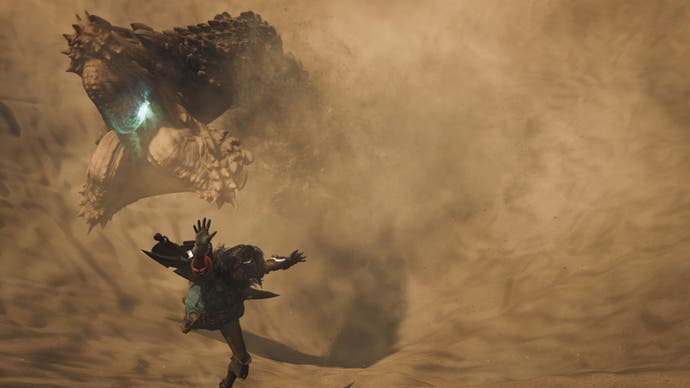
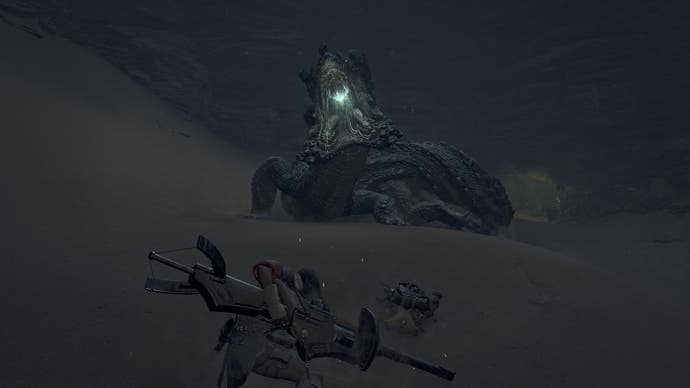
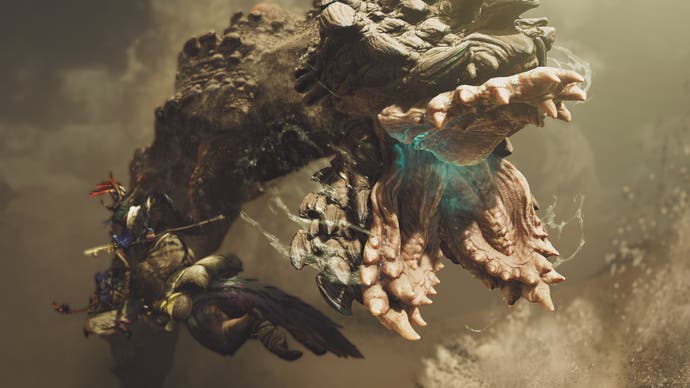
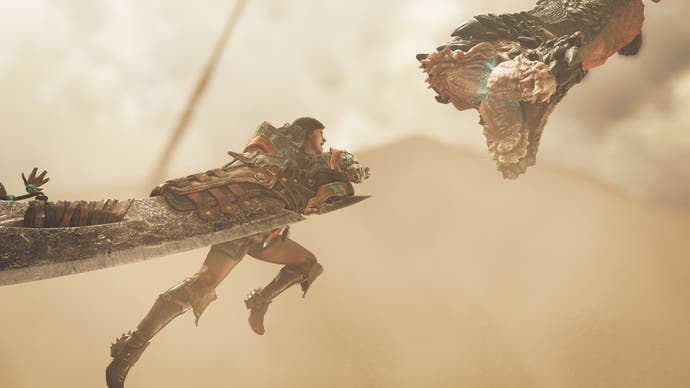
That brings us to combat, which has similarly been streamlined. Wounds can be inflicted on monsters organically by simply targeting the same points in succession, anywhere on the body, as if naturally hunting. Then, once a wound appears, focus mode can be engaged to automatically target weak points. My primary weapon choice is the bow, so frequently shooting at the Doshaguma's head caused a wound to appear; then, by holding the right bumper, the wound was automatically targeted with homing arrows for massive damage. What's more, bow players can fire a tracer at any body part and use this for focus attacks too with additional effect.
Focus mode aside, the controls felt familiar after time with Monster Hunter: Worlds and Monster Hunter: Rise, and I easily slipped back into a comforting rhythm as I shot a storm of arrows and performed last minute dodges. It all feels swift and elegant where before it's been clunky, and manoeuvring on the Seikrat helps to smooth over the whole experience. For newcomers, the game features a quiz to help determine the type of weapon that's most appealing, though I suspect there's still a fairly high barrier to entry for absolute beginners. I switched (easily while mounted) to the insect glaive weapon to perform some of the new pole dancing moves and admittedly my skill level dropped considerably.
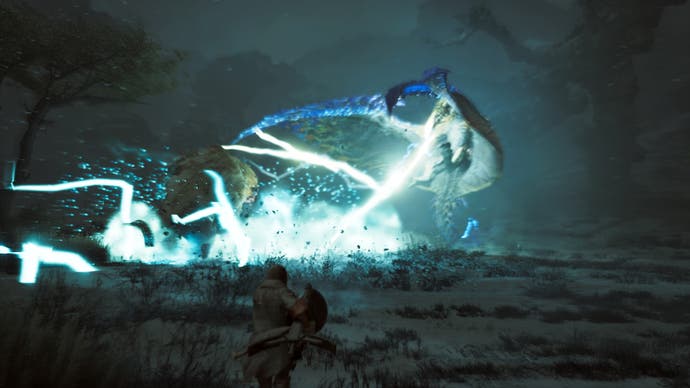
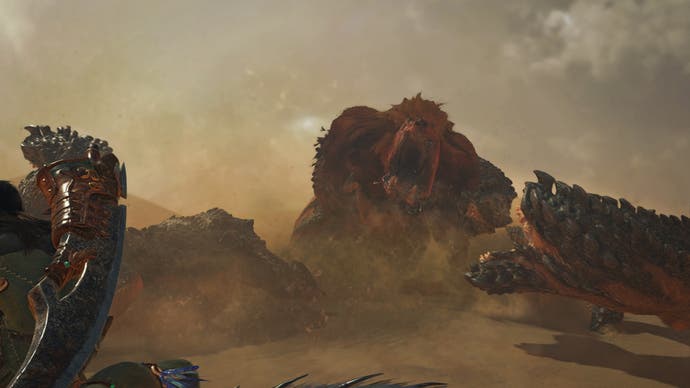
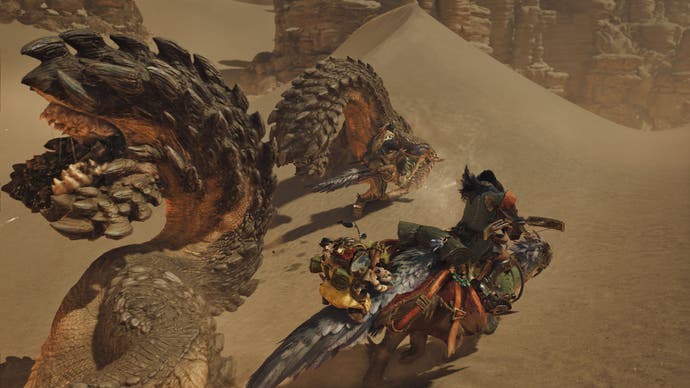
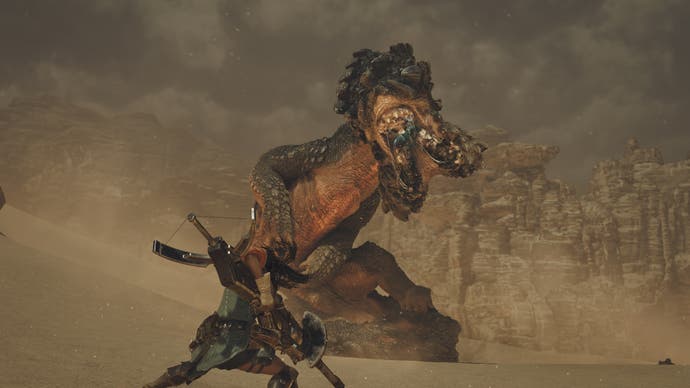
There are also plenty of interactions between monsters. While hunting the Doshaguma, it was at one point squeezed by a sandworm-like Balahara, and another Chatacabra made an appearance too. More frightening was the region's apex monster, the lightning dragon Rey Dau, who not only appeared to strike my own prey but brought a storm to darken the skies and sweep up the sand. Between weather effects, giant monsters, and herds of beasts on screen, the experience is highly dynamic and there's plenty to keep track of - plus plenty for the hardware to keep up with, just about.
Handily, players are accompanied by the Palico cat companions who once more can be customised - my little black fluffy guy came with an adorable moustache. Palico are handy in battle, distracting foes and providing healing, and this time their intelligence has been dialled up to bolster their usefulness - yet another quality of life improvement.
Though Capcom won't describe the game as open world, it is seamless as you move from hub area to exploration. This particular desert area was far larger than those in Rise and sprawling too, though the Seikrat makes navigation a breeze as it charges across the desert and leaps across rocky outcrops. Character models are also beautifully detailed, from the gnashing teeth of monsters to the hair and armours of NPCs.
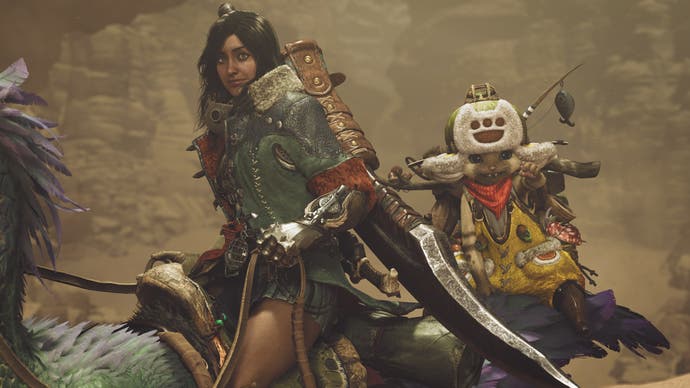
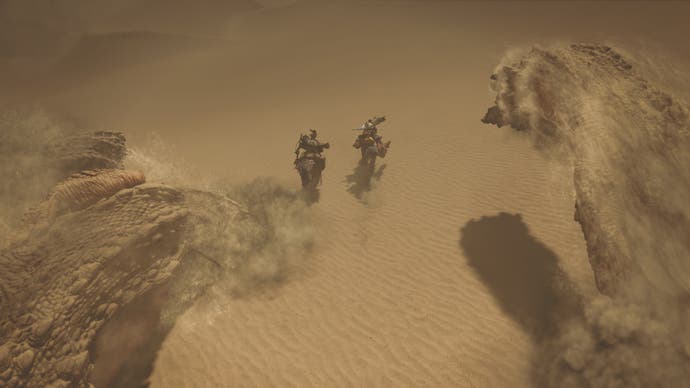
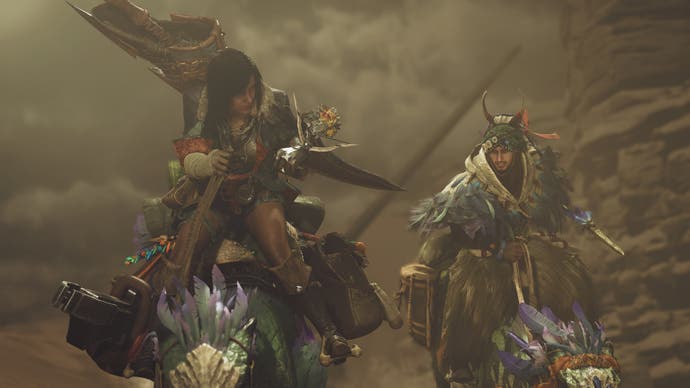
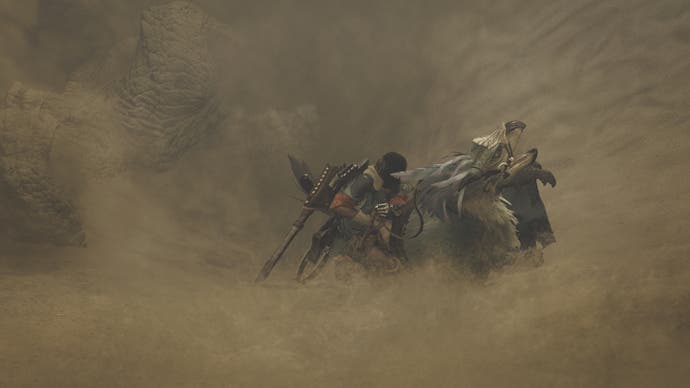
That's especially apparent in cutscenes. The first part of the demo focused on the story, as my character and a team of hunters aimed to assist a village ravaged by monsters. This led to a largely on-rails chase sequence across the sand, Seikrats outrunning a herd of rampaging sand worms whipping up dust. It was a visually impressive sequence but ultimately a shallow, flashy slice of action - it's clear Capcom is looking to entice a broader audience, but Monster Hunter remains at its best with agency in the hands of players.
For the most part, Monster Hunter Wilds strikes a balance between approachability and depth of combat. It offers a familiar thrill of the hunt, of player customisation (the new armours look awesome), and of extravagant combat, but with a fresh world ripe for a bit of co-op action - even with NPCs. Coupled with some of those smart tweaks to streamline the experience and put as much focus as possible on the action, rather than fiddly menus, and there's a good chance this one'll successfully lure in a new audience of hunters.









.webp?width=291&height=164&fit=crop&quality=80&format=jpg&auto=webp)